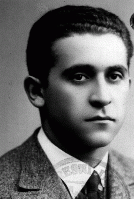You searched for: 澳门威尼斯人网址【手动输入∶___bet126.net___】最新地址请收藏,澳门威尼斯人网址是多少,澳门威尼斯人全部网址,澳门新威尼斯人的网址,澳门威尼斯人网址玩法,澳门威尼斯人网址44,澳门威尼斯人开户网址。
<< Previous | Displaying results 171-180 of 430 for "澳门威尼斯人网址【手动输入∶___bet126.net___】最新地址请收藏,澳门威尼斯人网址是多少,澳门威尼斯人全部网址,澳门新威尼斯人的网址,澳门威尼斯人网址玩法,澳门威尼斯人网址44,澳门威尼斯人开户网址。" | Next >>
-
Gitla Zoberman
ID CardGitla was the second-youngest of four girls born to observant Jewish parents. They made their home in Sandomierz, a predominantly Catholic town on the Vistula River. Her father owned a small bookstore across from the town hall, selling school texts and novels. Gitla attended public school before enrolling in a Catholic girls' high school. In the winter, Gitla enjoyed skating on the Vistula. 1933-39: In 1937 Gitla moved to Katowice, a large town on the Polish-German border. There, she enrolled in a…
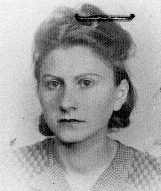
-
Lore Heumann
ID CardThe younger of two girls, Lore was born to Jewish parents in a village close to the Belgian border. The Heumanns lived above their general store. Across the street lived Lore's grandfather, who kept horses and cows in his large barn. When Lore was a year old, her family moved to the city of Lippstadt. The Lippe River flowed beyond the large garden in back of their house. 1933-39: When Lore was 6, her family moved to the nearby city of Bielefeld, where she entered public school. A year later, she and her…
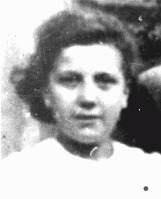
-
Channa Morgensztern
ID CardChanna and her husband and five children lived 35 miles east of Warsaw in the small predominantly Jewish town of Kaluszyn. Channa's husband, Jankel, was employed as a clerk in the town hall. After Channa's children reached school age, she helped her mother run a newspaper kiosk in town. 1933-39: Germany has invaded Poland, and Channa's hopes that Kaluszyn wouldn't be in the line of fire have been shattered. First, a German plane flew over their town and dropped a bomb on people waiting in line outside a…
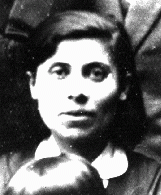
-
Lonia Goldman Fishman
ID CardLonia had three sisters and one brother. Her parents owned a cotton factory in the town of Wegrow. The Goldmans were a religious family, strictly observing the Sabbath, the Jewish holidays and the dietary laws. 1933-39: After studying all day at public school, Lonia attended a religious school for girls called Beis Yakov where she studied Hebrew, the Bible and Jewish history. Later, when she was in high school, a private tutor came to the house to teach her Hebrew. Lonia's favorite hobby was knitting.…
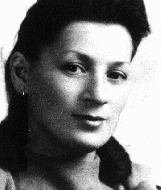
-
Erzsebeth Buchsbaum
ID CardErzsebeth was raised in Budapest, where her Polish-born Jewish parents had lived since before World War I. Her father, a brush salesman, fought for the Austro-Hungarian forces in that war. The Buchsbaums' apartment was in the same building as a movie house. There was a small alcove in the apartment, and Erzsebeth's brother, Herman, made a hole in the wall so that they could watch the films. 1933-39: Every summer Erzsebeth, Herman, and their mother took a special trip to Stebnik, Poland, to visit Grandma.…
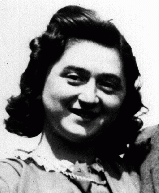
-
Henryk Lubelski
ID CardHenryk was raised in a religious Jewish family. His father was a cantor, and his parents placed an emphasis on education. In 1916 the Lubelskis moved to Rawicz, a town in German-occupied Poland. Henryk was first in his class in secondary school, where he also excelled in wrestling and soccer. After graduating, Henryk became an apprentice in a business. 1933-39: In 1935 Henryk's father secured a good position in the city of Katowice. There, Henryk worked in the sausage business. Since Katowice was close to…
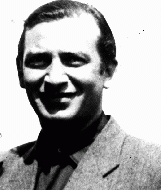
-
Selma Wijnberg
ID CardSelma was the youngest of the Wijnberg's four children, and the only daughter. When she was 7, her family left Groningen to start a business in the town of Zwolle [in the Netherlands]. There her parents ran a small hotel popular with Jewish businessmen traveling in the area. Every Friday there was a cattle market, and many of the cattle dealers came to the Wijnberg's hotel for coffee and business. 1933-39: At home Selma and her family were observant of Jewish tradition because her mother was religious.…
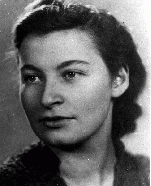
-
Walter Schnell
ID CardWalter was born to a Jewish family in the German town of Strehlen, 25 miles south of Breslau. His family's crystal business was prominent in the town for more than 100 years. Walter's parents sent him to Berlin in the mid-1920s to learn the porcelain trade. He returned to Strehlen in 1926 to help his family run the business. 1933-39: In 1937 Walter's family moved to Breslau. After the German pogroms of 1938 [Kristallnacht, Night of Broken Glass], he was deported to Buchenwald. When he arrived he was…
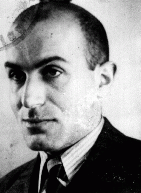
-
Moishe Menyuk
ID CardMoishe was born to a Jewish family in the village of Komarovo, which until 1918 was part of the Russian Empire. At 18, he was drafted into the Russian army and fought in World War I. He was captured by the Germans, and while a POW, learned German. After the war he returned to Komarovo, which by then was part of Poland. He supported his family by farming and managing an estate for a Pole from Warsaw. 1933-39: The few Jews of Komarovo got along well with the Ukrainians. Moishe even played the fiddle at…
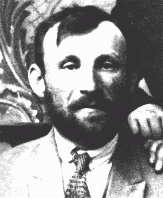
-
Erich Schon
ID CardErich was one of five children born to observant Jewish parents. They lived in Vsetin, a town in Czechoslovakia's Moravia region that straddled the border with Slovakia. Some 70 Jewish families lived in the town of 12,500 persons. There, Erich's family owned a grocery store and operated a sawmill. Erich attended a trade school where he became an expert in lumber and forestry. 1933-39: The Germans kept Erich's family's sawmill operating after they occupied their region in March 1939. Since Erich had a…
